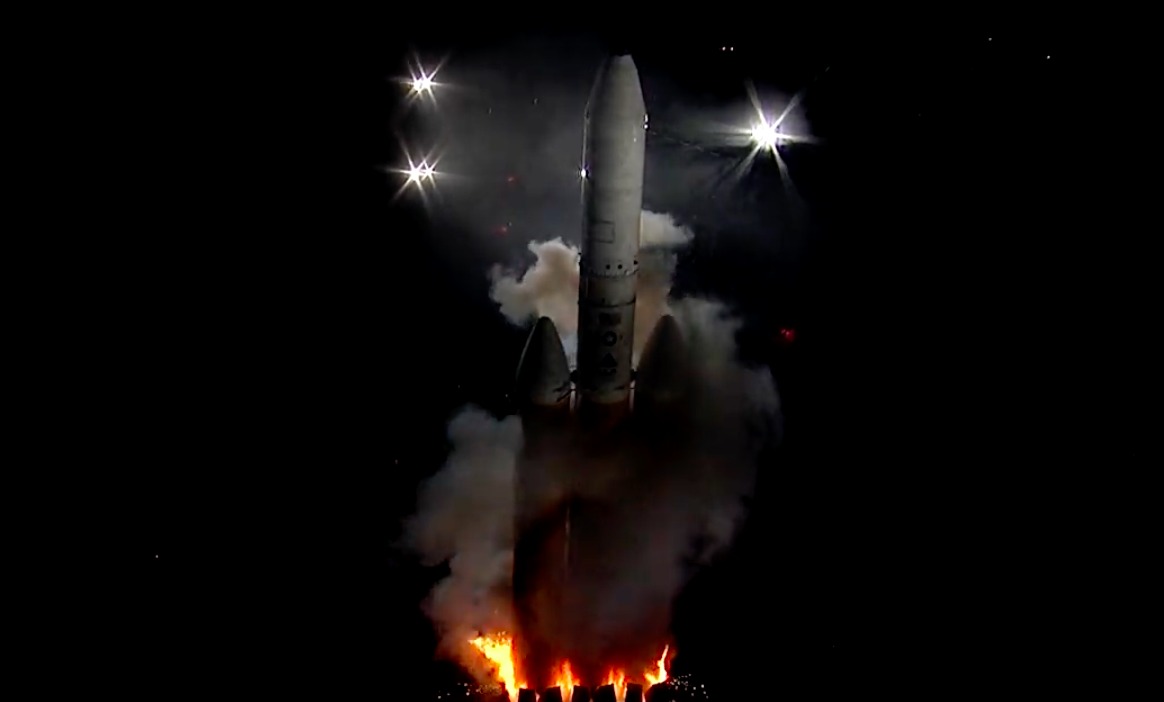ULA statement: “Initial indications were with a ground system, and we are working to confirm the exact cause.”
WASHINGTON — United Launch Alliance has not yet confirmed exactly what caused a dramatic abort of a Delta 4 Heavy launch just three seconds before liftoff on Aug. 29.
“We are in the middle of conducting a thorough investigation to determine the root cause of the NROL-44 on-pad abort,” ULA spokeswoman Julie Arnold said in a statement to SpaceNews.
The rocket carrying a National Reconnaissance Office classified spy satellite remains on the ground at Space Launch Complex-37 at Cape Canaveral Air Force Station in Florida.
During the ignition sequence before the planned 3:28 a.m. liftoff, fire was seen at the bottom of the rocket’s three engines but ULA said the engines never ignited and the automated control system aborted the mission.
“Initial indications were with a ground system, and we are working to confirm the exact cause,” said Arnold. “The system aborted at T-minus 3 seconds because the start conditions were not met to proceed with core engine startup.”
After a pad abort that occurs under five seconds from liftoff, ULA needs at least seven days to replace expended ground system hardware and validate flight systems, said Arnold.
The company will need more time to complete the investigation, said Arnold, before it sets a new target launch date for NROL-44.
“We will take our time to thoroughly review the Delta 4 Heavy to identify, repair and retest the system. Once that is complete we will identify a new launch date,” Arnold said.
